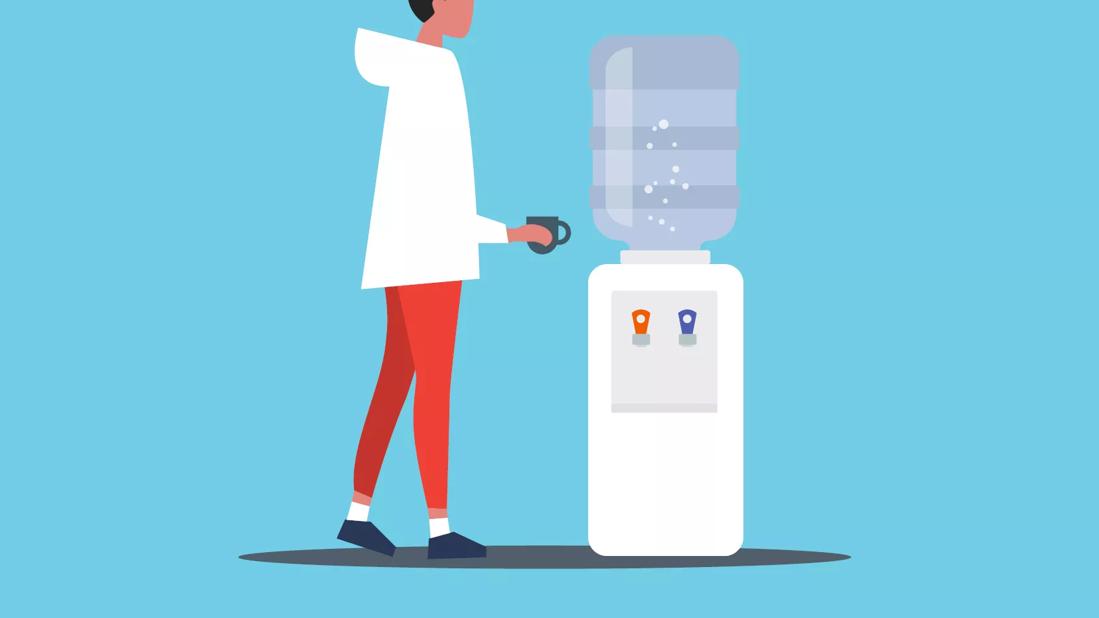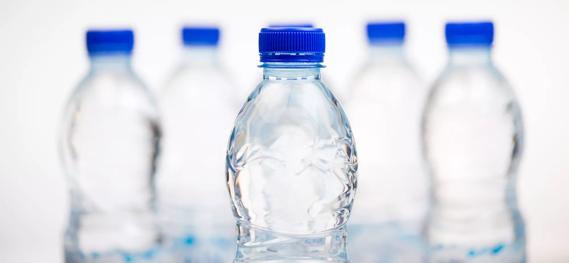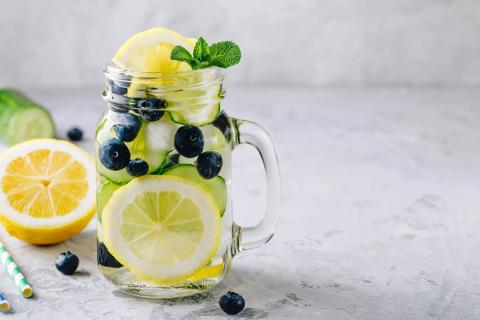It all depends on your ideal temperature

Some like it with ice. Others like it hot with a slice of lemon. And some of us are just fine with whatever comes out of the tap. But does the temperature of the water we drink have a positive or negative effect on our health? Fill up your glass and take a minute to read what gastroenterologist Brian Weiner, MD, has to say.
Advertisement
Cleveland Clinic is a non-profit academic medical center. Advertising on our site helps support our mission. We do not endorse non-Cleveland Clinic products or services. Policy
It might seem silly to define this, but think about it. You can be in a room that’s comfortable temperature-wise to you and one person will be freezing while another person will be burning up. So, that’s why we’re here — giving you a range of cold water temperatures.
Dr. Weiner says that a pitcher of ice water from the fridge would be around 41 degrees Fahrenheit (5 degrees Celsius). Cold tap water would be around 60 F (15.55 C). Room temperature water comes in at around 78 F (25.55 C).
You’d think there’d be a lot of research behind this. But Dr. Weiner says there isn’t a lot of science to back up the claim of whether or not cold water is good for you.
“We all need to hydrate ourselves. That’s critical. In terms of studies or science about this, it is relatively limited,” he says.
He adds that in the best-studied cases regarding athletes and hydration, though, athletes gravitated toward cold tap water more. Cold tap water also seemed to cool them down faster.
“It turns out that sweating stops before fluid can completely be incorporated into the body. There’s some kind of reflex that acknowledges liquid intake, and studies have shown that it kicks in more at the cold tap water level,” says Dr. Weiner.
Advertisement
Dr. Weiner is quite familiar with this one. A few years ago, he decided to part ways with ice cream and started eating Italian ice instead. While he learned to love the swap, something still wasn’t quite right. It was the calorie count on the cups. They didn’t factor in the amount of energy that the body uses to melt the ice. So, he decided to look into it.
“I calculated it, and for every ounce of ice that you eat, it takes five calories to melt it and bring it up to body temperature,” Dr. Weiner says. He wrote a paper about it as well.
So, in a nutshell, if you want to hydrate, cold tap water is a good choice. If you want to burn some extra calories, munch on ice — or Italian ice.
Achalasia is a rare health condition that affects about 1 in 100,000 people in the U.S. every year. With achalasia, your esophagus can’t move food and liquids to your stomach. Your lower esophageal sphincter (LES), the muscle that connects your stomach to your esophagus, opens to allow food and liquids to enter your stomach and closes to prevent stuff from backing up into your esophagus. With achalasia, the LES doesn’t open.
One study suggests drinking hot beverages or eating warm or hot foods could help the LES to relax and decrease its resting pressure. Cold water can make the symptoms of achalasia worse.
It’s been said that drinking warm or hot water can help you have smoother bathroom moves or make you feel better when your sinuses are congested. But Dr. Weiner says there aren’t a lot of health benefits related to drinking warm or hot water.
“There’s something very comforting about hot beverages. People like hot beverages for their souls, for their psyches,” he notes. “If you have a cold and the hot steam gets into your nasal passages, that can offer some relief but that’s not a hydration issue. That’s similar to mom giving you a hot cup of chicken soup — the nurturing value of the food itself, but medically, there’s very little to no value.”
So, when it comes down to it, it’s mostly about personal preference.
Advertisement
Learn more about our editorial process.
Advertisement

Consumption needs vary based on activity, weather, metabolism and other factors

A glass of lemon water in the morning can help with digestion and boost vitamin C levels, and may even help get you into a better routine

Mold and bacteria in your reusable water bottle can cause health issues like infections, respiratory issues and allergic reactions

Sitting in the dry heat may help reduce stress, improve heart health and relieve pain

Adding salt to your water isn’t going to have measurable benefits — but there may be plenty of downsides

Drinking untreated water can have dangerous consequences, like bacterial infections

Although it adds to your hydration, this water may be pushing you over the limit of the daily recommended dosage of caffeine

If you’re trying to drink less soda or fewer sugary drinks, flavored water can be a delicious and healthy alternative

Wearing a scarf, adjusting your outdoor activities and following your asthma treatment plan can help limit breathing problems

Your diet in the weeks, days and hours ahead of your race can power you to the finish line

When someone guilt trips you, they’re using emotionally manipulative behavior to try to get you to act a certain way